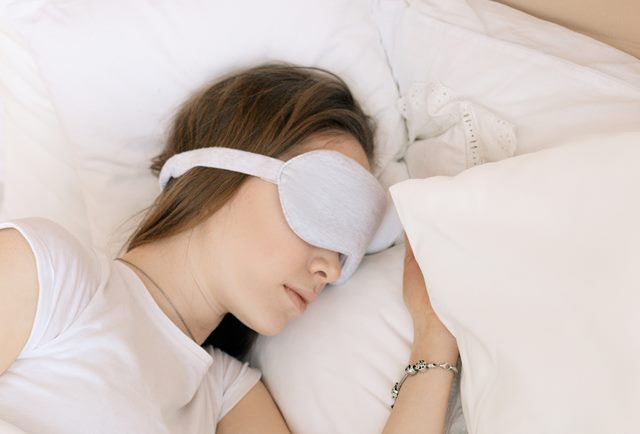Have you ever had a night of terrible sleep and woke up feeling groggy and irritable? Or maybe you’ve pulled an all-nighter and found yourself struggling to focus and stay alert the next day. The truth is, sleep is highly important for both physical and mental regeneration. It allows our bodies to repair and restore themselves, while also helping to consolidate memories and regulate our moods.
Lack of sleep has been linked to many health problems, including obesity, diabetes, and depression. Hence, if you want to be at your best, it is important to prioritize getting enough shut-eye.
In this article, we’ll explore the many benefits of sleep, as well as some tips for getting a good night’s rest.

The Importance of Sleep
Sleep is a fundamental aspect of human life and is necessary for our physical, mental, and emotional well-being.
While we often tend to neglect it in our busy lives, the importance of sleep cannot be overstated. Getting enough sleep can have a profound impact on our health, improving our quality of life, and enhancing our productivity.
Read: Dispelling Myths About the Science of Weight Loss
Importance of Sleep for Children and Adolescents
Sleep is especially important for physical and mental regeneration in children and adolescents, as it is very much needed for their growth and development.
Children and teenagers who get adequate sleep are more likely to have better academic performance, behavioral and emotional regulation, and overall physical health.
Innovative Tech Solutions, Tailored for You
Our leading tech firm crafts custom software, web & mobile apps, designed with your unique needs in mind. Elevate your business with cutting-edge solutions no one else can offer.
Start Now
Read: Sleep Paralysis: Demonic or Normal?
Importance of Sleep for Adults and the Elderly
Sleep is also essential for aging adults, as it can help prevent age-related cognitive decline and improve their overall quality of life.
Adults who get adequate sleep are less likely to experience memory loss, depression, and other mental health issues.
Read: How Does Quality Sleep Transform Your Well-being?
Physical Benefits of Sleep
Getting enough shut-eye has some crucial physical advantages. Here are some:
Muscle Recovery
Sleep is needed for muscle recovery. While sleeping, the body produces growth hormones that help repair and restore muscles that have been damaged during physical activity.
The restorative process helps to reduce muscle soreness, improve muscle growth, and prevent injuries.
Studies have shown that athletes who get enough sleep recover more quickly from injuries and perform better than those who don’t.
Immune System and Cytokine Production
When we sleep, our bodies produce cytokines, a type of protein that helps the immune system fight off infections and inflammation.
Adequate sleep helps to boost the production of cytokines, leading to better immunity against illnesses and infections.
Inadequate sleep, on the other hand, can weaken the immune system and make us more susceptible to infections.
Seamless API Connectivity for Next-Level Integration
Unlock limitless possibilities by connecting your systems with a custom API built to perform flawlessly. Stand apart with our solutions that others simply can’t offer.
Get StartedWeight Management
When we sleep, our bodies produce hormones that help regulate our metabolism, appetite, and energy levels.
Inadequate sleep can affect the production of these hormones, leading to increased appetite, cravings, and weight gain.

Research shows that people who get enough sleep tend to have better control over their food choices and are less likely to be overweight or obese.
Cardiovascular Health
Not getting enough sleep can increase the risk of high blood pressure, heart disease, and stroke. When we sleep, our bodies regulate our blood pressure and reduce stress on the heart.
Studies have shown that people who get enough sleep tend to have lower blood pressure and a lower risk of developing cardiovascular disease.
Read: The Best Self-Care Routines for Your Mental Health
Mental Benefits of Sleep
In addition to the physical benefits of sleep, getting enough sleep is also necessary for our mental health. Here are some of the benefits adequate sleep proffer to our mental health:
Improved Memory and Learning
Sleep is great for memory consolidation and learning. When we sleep, our brains process and consolidate the information we have learned throughout the day.

Studies confirm that students who get enough sleep perform better on tests and have better memory retention than those who don’t. Furthermore, lack of sleep can impair cognitive function, affect decision-making skills, and lead to forgetfulness.
Transform Business with Custom CRM & ERP Solutions
Elevate your operations with a CRM or ERP tailored for you. Let’s build the perfect solution that others can't replicate—crafted to match your business's needs like no other.
Get StartedBetter Mood and Emotional Regulation
Sleeping helps with emotional regulation and overall mood. Lack of sleep can lead to irritability, anxiety, and depression.
Adequate sleep helps to regulate our emotions and reduce the risk of developing mood disorders. Furthermore, sleep helps to reduce stress and improve our ability to cope with stressors.
Increased Creativity and Productivity
When we are well-rested, we can think more clearly, make better decisions, and perform tasks more efficiently.
Studies have shown that people who get enough sleep tend to be more productive, creative, and innovative than those who don’t. And they may even be able to effectively multi-task whilst delivering excellence in all tasks.
Reduced Risk of Mental Health Disorders
Sleeping plays a vigorous role in mental health, and lack of sleep can increase the risk of developing mental health disorders such as anxiety and depression.
People who get enough sleep tend to have better mental health outcomes, including better emotional regulation, improved mood, and a lower risk of mental health disorders.
Tips For Getting a Good Night’s Sleep for Mental and Physical Regeneration
Getting a good night’s sleep is consequential for our physical, mental, and emotional well-being. Unfortunately, many of us struggle to get the recommended 7-9 hours of sleep per night, and the consequences of sleep deprivation can be severe.

Poor sleep quality can lead to a range of health issues, including obesity, heart disease, and diabetes, as well as impaired cognitive function and emotional regulation.
This is why we will provide tips for getting a good night’s sleep and improving your sleep quality.
Tailored Tech Solutions to Drive Your Business Forward
Maximize your business potential with custom tech strategies. We deliver bespoke solutions that others can’t match, designed to solve your specific challenges with precision and impact.
Contact UsStick to a Sleep Schedule
One of the best things you can do to keep on with adequate sleep is to establish a consistent sleep schedule.
Go to bed and wake up at the same time every day, even on weekends. Doing so can help regulate your body’s internal clock and ensure you get enough sleep every night.
Create a Sleep-Inducing Environment
Make sure that your sleeping environment is comfortable, dark, and quiet.
Use curtains, blinds, or an eye mask to block out any light, and consider using earplugs or a white noise machine to drown out any background noise.

Keep the temperature in your bedroom cool and comfortable to promote restful sleep.
Avoid Stimulants and Depressants
Avoid consuming caffeine, nicotine, and alcohol before bedtime, as they can all disrupt your sleep quality. Caffeine and nicotine are stimulants that can keep you awake, while alcohol is a depressant that can interfere with the quality of your sleep.
Exercise Regularly
Regular exercise can help improve your sleep quality, but it is essential to time your workouts correctly. Try to finish exercising at least three hours before bedtime to give your body enough time to wind down and prepare for sleep.
Wind Down Before Bedtime
Establish a relaxing bedtime routine to help you wind down before bed. Avoid watching TV, using electronic devices, or engaging in stimulating activities before bedtime, as they can interfere with your sleep. Instead, try reading a book, taking a warm bath, or practicing relaxation techniques such as deep breathing, meditation, or yoga.
Watch What You Eat and Drink
Avoid eating large, heavy meals before bedtime, as they can cause discomfort and interfere with your sleep. Instead, opt for a light snack such as a banana, some nuts, or a small bowl of cereal.
Drinking a warm glass of milk or chamomile tea can also help you relax and prepare for sleep.
Manage Your Stress
Stress and anxiety can make it challenging to fall asleep and stay asleep. Practice stress-reducing techniques such as deep breathing, meditation, or mindfulness to help you relax and calm your mind before bedtime.
Consider keeping a worry journal to help you offload any anxious thoughts and reduce stress levels.
The Negative Effects of Too Much Sleep on Physical and Mental Health
While it’s important to prioritize getting enough sleep, oversleeping can negatively affect our health and well-being.

Although the ideal amount of sleep varies from person to person, experts generally recommend getting between 7-9 hours of sleep per night.
Sleeping more than this can have various negative effects on our physical and mental health.
Here are some:
Increased Risk of Health Problems
Studies have shown that people who regularly sleep for more than nine hours per night are at an increased risk of developing various health problems.
Some of the health problems linked to oversleeping include:
- Obesity: Sleeping too much can disrupt our body’s ability to regulate appetite and increase the risk of overeating and weight gain.
- Diabetes: Sleeping for more than 9 hours per night has been linked to an increased risk of developing type 2 diabetes.
- Heart disease: Oversleeping has been linked to an increased risk of developing heart disease and stroke.
Mental Health Problems
Getting too much sleep can also have negative effects on our mental health, leading to feelings of depression and anxiety.
While it is not clear how too much sleep affects mental health, studies have shown that people who regularly oversleep are more likely to experience symptoms of depression and anxiety.
Increased Daytime Sleepiness
While it may seem counterintuitive, too much sleep can actually lead to increased daytime sleepiness. Oversleeping can disrupt our sleep cycle and lead to grogginess and fatigue during the day.
This can negatively impact your productivity, leading to poor work performance and decreased overall well-being.
Poor Sleep Quality
Sleeping for too long can also negatively impact the quality of our sleep. People who oversleep are more likely to experience fragmented and disrupted sleep, leading to feelings of tiredness and exhaustion during the day.
Before you go…
Hey, thank you for reading this blog to the end. I hope it was helpful. Let me tell you a little bit about Nicholas Idoko Technologies. We help businesses and companies build an online presence by developing web, mobile, desktop, and blockchain applications.
We also help aspiring software developers and programmers learn the skills they need to have a successful career. Take your first step to becoming a programming boss by joining our Learn To Code academy today!










